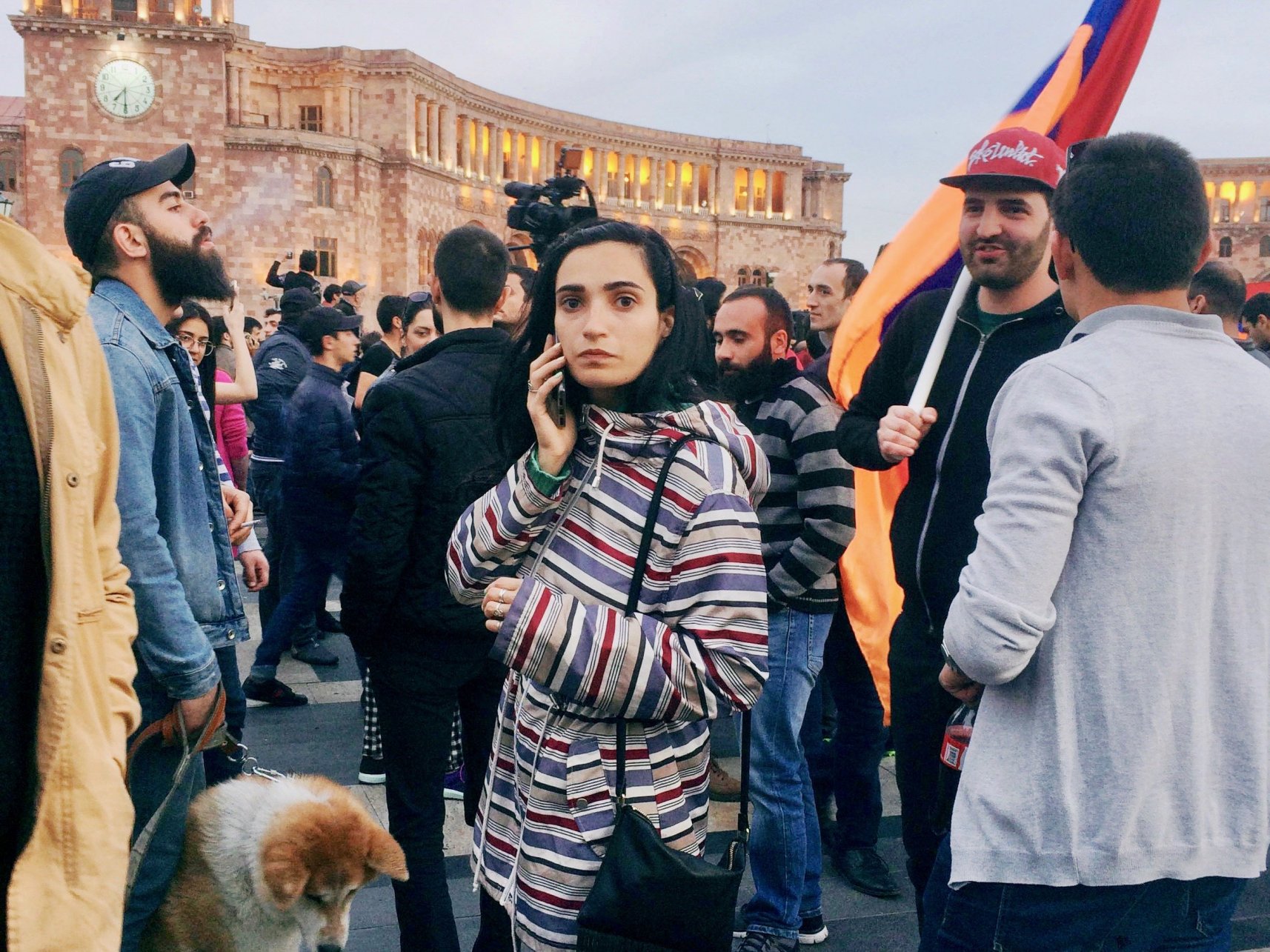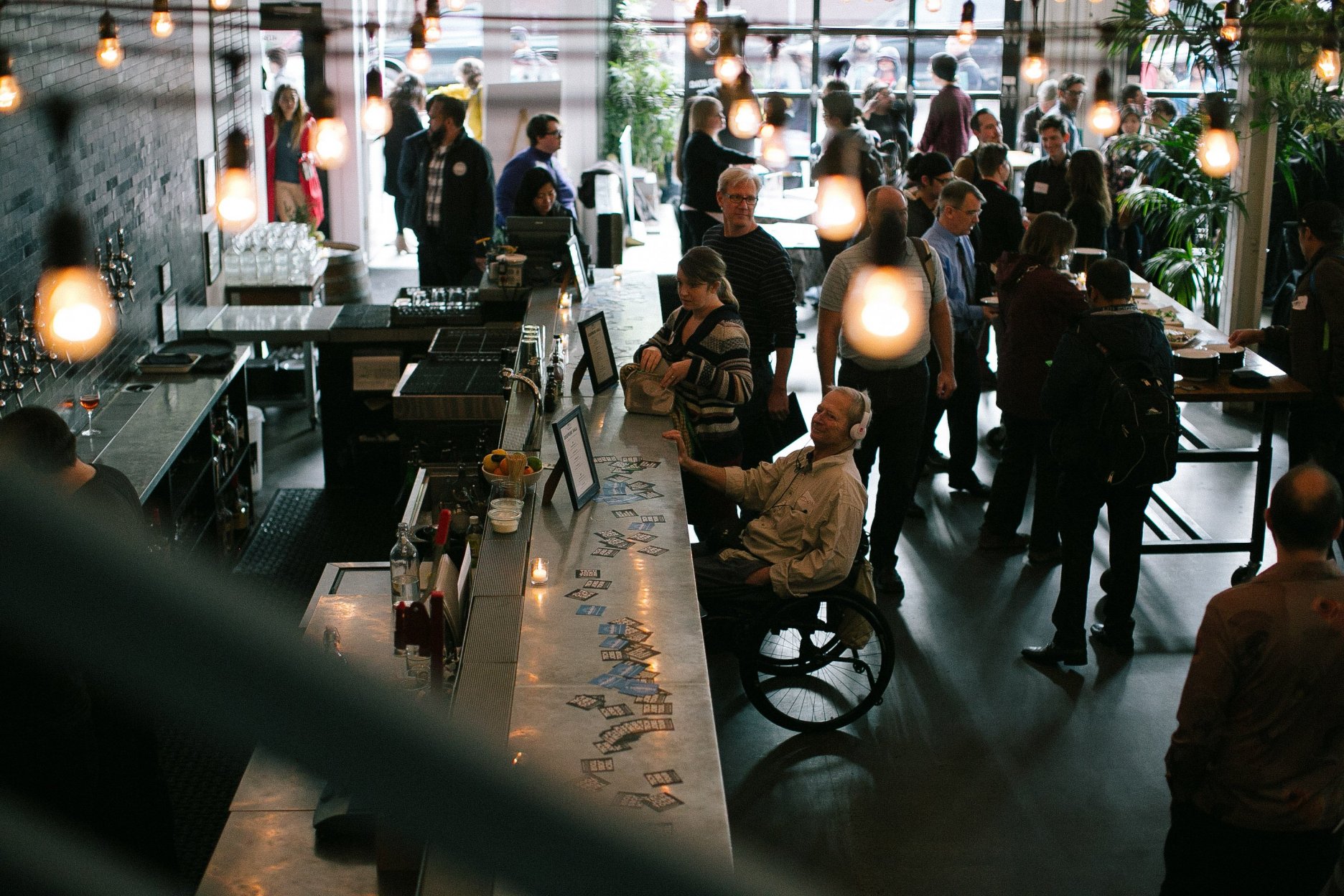Ein Beitrag von Florian Gawehns
Partizipation
Die prekäre Lage der Republikanischen Partei
Ein Beitrag von Orchan Ali-sade
Ein General als Chance: Warum die deutsche Außenpolitik auf James Mattis setzen sollte
Ein Beitrag von Felix Stoßmeister
UK Pen Pal: A Candid Correspondence on Brexit
A Correspondence between James Hall and Ulrich Czeranka
Halbzeitzeugnis für Trump: Was bedeuten die Midterm Elections für Deutschland & Europa?
Ein Beitrag von Robert Fisher
“Wir sind heute in einer Phase des Übergangs”
Ein Interview mit Claire Saillour & Dr. Andreas Marchetti
Putin’s “direct line” with the Russian People: 4.5 Hours in Limbo
An Opinion by Anastasia Vishnevskaya
Allez l’Europe! Polis180 startet deutsch-französische Zukunftswerkstatt
Ein Beitrag von Claire Saillour
Auf gute Nachbarschaft: Frank-Walter Steinmeier zu Gast in der Schweiz
Ein Gespräch mit Anne-Kathrin Glück und Simon Reber
Why Armenians Call for a Velvet Revolution
An Interview with Olya Azatyan and Sonja Schiffers
„Germany is the best place to pursue our fight for women’s rights“
An Interview with Lama Ahmad and Lisa Crinon
Super Election Year in Latin America: Peace, Polls & Populism
A Comment by Lena Riemer
The Colombian Transformation Process: Why Gender is Key
A Comment by Frauke Seebass
Russia’s Opposition Drama: Drop the Boycott or Drop the Ballot
A Comment by Anastasia Vishnevskaya
Wo bleibt die gemeinsame Identität in der linksliberalen Politik?
Ein Beitrag von Robert Fisher
“Young People Want to Move Around Europe Freely”
An Interview with Joan McAlpine and Rhianna Mallia
Talking Think Tanks and Beyond
An Interview with Enrique Mendizabal and Sonja Schiffers
Foreign Policy Review: Polis180 kommentiert neuen Koalitionsvertrag
Politische Statements von Polis-Mitgliedern
Civil Society Can Do More Than Promote Gender Equality
An Interview with Barbara Fürst, Charlotte Becker and Miriam Meier
UK Pen Pal: A Candid Correspondence on Brexit
A Correspondence between Camille Duserre and Patrick von Gehm
UK Pen Pal: A Candid Correspondence on Brexit
A Correspondence between Rowan Emslie and Saúl Paiz
How Women in Tech Fight for Development and Good Governance
A Comment by Sonja Schiffers
What I Have Learned from Travelling Through Post-2014 Ukraine
A Travel Report by Sophie Falsini
Is Scotland Ready for a Second Independence Referendum?
A Comment by David Tschorr
Northern Ireland’s Brexit Opportunity: Building Bridges, Not Borders
A Comment by Grace McLoughlin
Brexit Heartbreak and the Democratic Deficit
An Interview with Sarah Coughlan and Sophie Pornschlegel
#partypeople – Junges Engagement in politischen Parteien. Entwicklungsmöglichkeiten & alternative Formen der Mitbestimmung
Polis180 veröffentlicht seinen Workshop-Bericht zu jungem Engagement in politischen Parteien – Entwicklungsmöglichkeiten und alternative Formen der Mitbestimmung. Julian Zuber verfasste den Bericht, dessen Inhalte im Rahmen eines Workshops erarbeitet wurden.
The Women’s March: What it was and what it has to be
A Comment by Jasmin Gabel
Österreichs Weg aus der Erstarrung
Am Sonntag, den 4. Dezember bittet die österreichische Alpenrepublik ihre BürgerInnen zum nunmehr dritten Mal, ihr Kreuz für ihren Präsidentschaftskandidaten zu setzen. Die Wahl ist innen- wie außenpolitisch eine Richtungsentscheidung mit gesamteuropäischen Konsequenzen.
Ein Beitrag von Diana Klie
Unraveling Media Bias in the U.S. Elections
A Comment by Tori Dykes




